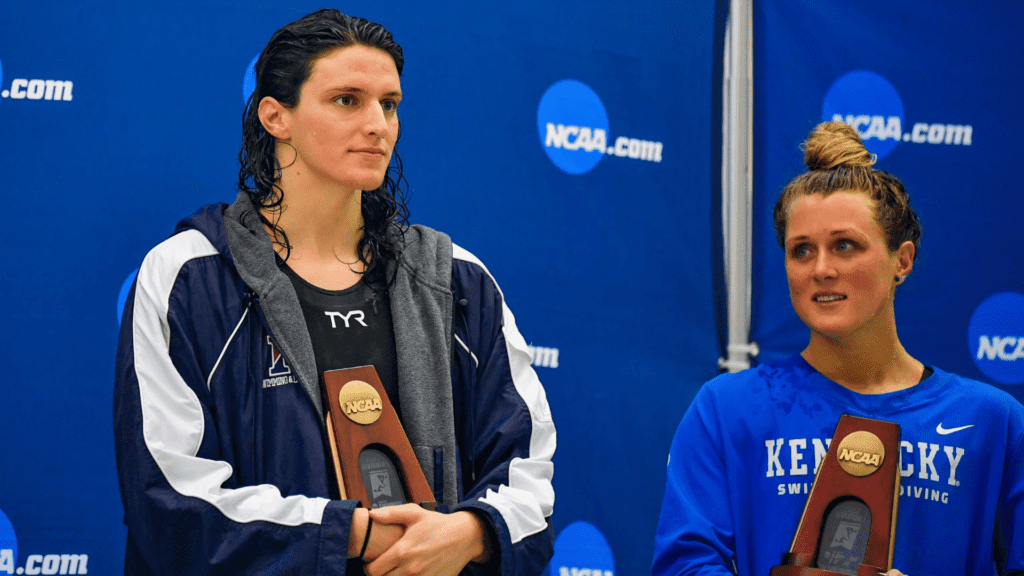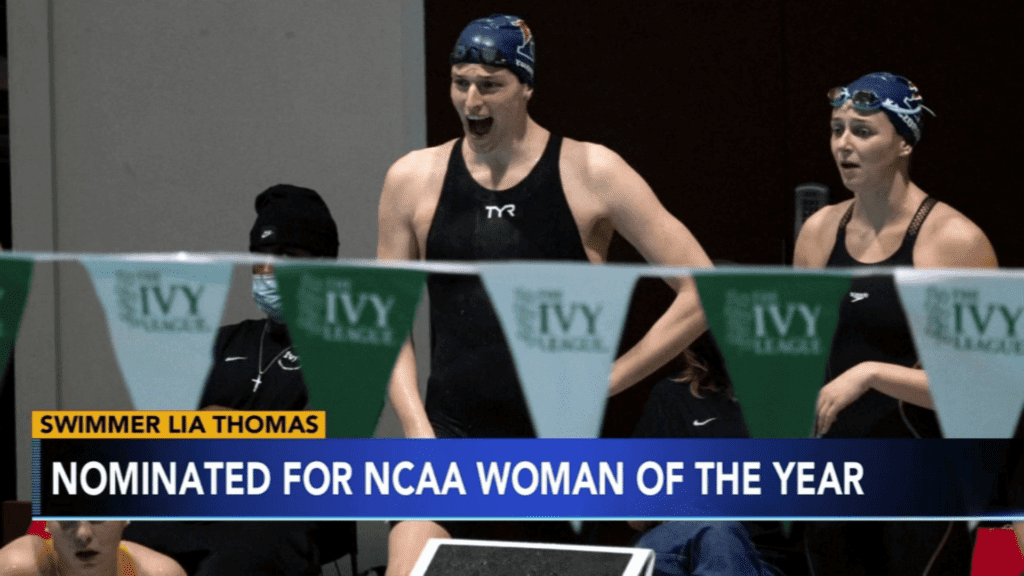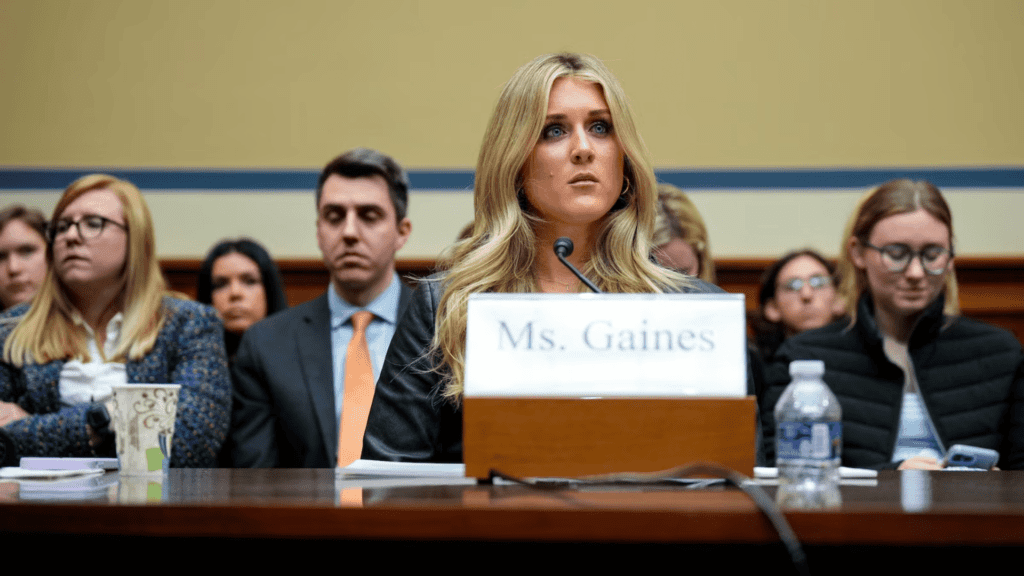
Sixteen female college athletes have taken legal action against the National Collegiate Athletics Association (NCAA) for permitting transgender athletes to participate in competition alongside them and utilize shared facilities such as locker rooms.
According to The Free Press, the focal point of this class action lawsuit is Lia Thomas, a transgender athlete and former University of Pennsylvania student, whose exceptional performance at the 2022 NCAA swimming championships has stirred controversy.
The lawsuit asserts that both the NCAA and Georgia Tech, the host of the event, knowingly violated Title IX, a federal statute designed to ensure equal opportunities for men and women in collegiate education and athletics.
This legal action marks a significant milestone, being the first of its kind on a federal level, as reported by The Free Press. Its primary objective is to instigate rule changes that would render biological males ineligible to compete against female athletes. Furthermore, the lawsuit demands the revocation of awards granted to transgender athletes in women’s competitions, advocating for them to be “reassigned” to their female counterparts.

In addition to seeking changes in policy, the lawsuit also pursues compensation for various forms of harm caused by what it deems as the defendants’ wrongful conduct. This includes damages for pain and suffering, mental and emotional distress, as well as expenses incurred due to the repercussions of the alleged transgressions.
Lia Thomas, initially a member of the University of Pennsylvania’s men’s swim team from 2017 to 2020, did not advance to the NCAA championships during that period. However, after undergoing two years of hormone therapy, Thomas transitioned to the women’s team, where she notably excelled in both sprint and endurance races, surpassing her female competitors.
During this transition, Thomas also made headlines for being nominated for the NCAA Women of the Year award. Nevertheless, her switch of locker rooms stirred controversy within the ongoing lawsuit. Plaintiffs accused the NCAA of violating the Fourteenth Amendment by allegedly “destroying female safe spaces in women’s locker rooms.”

Among the plaintiffs, Kylee Alons, a former swimmer for North Carolina State, voiced her discomfort with Thomas using the women’s locker room during the championships. Alons revealed to the news outlet that she felt so uneasy about the situation that she resorted to changing in a “dimly lit storage and utility closet” located under the bleachers. “I was literally racing U.S. and Olympic gold medalists and I was changing in a storage closet at this elite-level meet,” Alons said. “I just felt that my privacy and safety were being violated in the locker room.”
The lawsuit, spearheaded by the Independent Council on Women’s Sports, asserts that the NCAA’s decision to permit Lia Thomas to compete against women is founded on an “illegal premise.” Specifically, the suit contends that the notion that “testosterone suppression and personal choice alone can make a male eligible to compete on a women’s sports team” is unlawful.
Furthermore, it criticizes the association’s regulations, claiming that they allow “men to compete on women’s teams with a testosterone level that is five times higher than the highest recorded testosterone level for elite female athletes.” This, the suit argues, provides males who have undergone puberty with an inherent biological advantage over women, a disparity that no woman can bridge without resorting to doping.
One of the plaintiffs, Emma Gaines, who tied with Thomas in the 200-yard freestyle final at the 2022 Championships, expressed her concerns to The Free Press. Gaines stated that by permitting biological males to compete against women, the NCAA is “undermining everything that Title IX was created to protect.”
“The NCAA’s most basic job is to protect the fairness and safety of competition,” Gaines said, “but instead the NCAA has been and continues to openly discriminate against women.”

The lawsuit, lodged in federal court in Georgia, the very site of the 2022 championships, holds the potential to reshape eligibility regulations across all 1,100 colleges and universities affiliated with the NCAA. If successful, it could mandate the exclusion of all athletes assigned male at birth from participating in women’s sports.
Emma Gaines, who refrains from using female pronouns for Lia Thomas, voiced her discontent to The Free Press. She expressed incredulity regarding Thomas’s pride in her achievements atop the podium, stating, “He was following the rules, which is why we’re challenging the rules. Because it is the rules that are the problem. Not Lia Thomas.”







